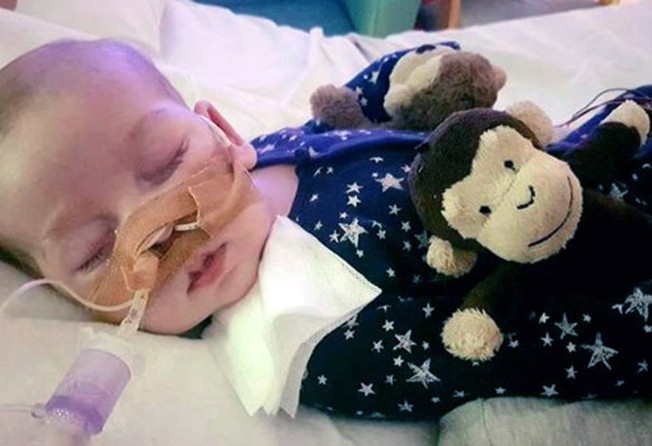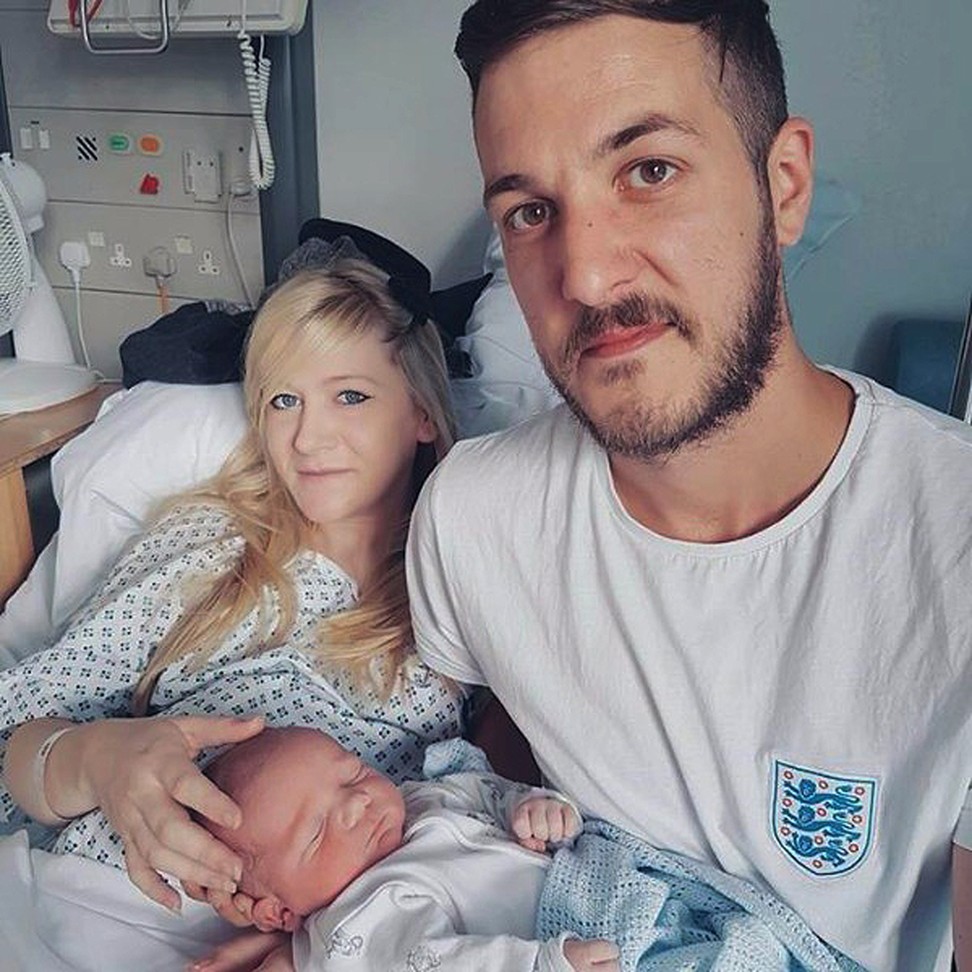If we can help little #CharlieGard, as per our friends in the U.K. and the Pope, we would be delighted to do so.
— Donald J. Trump (@realDonaldTrump) July 3, 2017
Donald Trump offers help for terminally ill British baby Charlie Gard, who may be removed from life support

US President Donald Trump has offered to help the parents of a terminally ill British baby who have lost a legal fight to take him to the United States for treatment.
The US president said he would be delighted to help Charlie Gard, whose parents wanted him to undergo a therapy trial in the US to treat a rare genetic condition. But the request was denied by a British court, and Charlie’s hospital has already secured the right to turn off his life support.
Members of the Trump administration have talked to the 10-month-old’s family, a White House spokeswoman said on Monday. “Our goal is not to pressure but simply to be helpful if possible in this very difficult and heartbreaking situation,” Sarah Huckabee Sanders said.
In a tweet on Monday, Trump wrote that: “If we can help little #CharlieGard, as per our friends in the U.K. and the Pope, we would be delighted to do so.”
Helen Aguirre Ferré, the director of media affairs at the White House, added: “Upon learning of baby Charlie Gard’s situation, President Trump has offered to help the family in this heartbreaking situation.
“Although the president himself has not spoken to the family, he does not want to pressure them in any way, members of the administration have spoken to the family in calls facilitated by the British government. The president is just trying to be helpful if at all possible.
“Due to legal issues, we cannot confirm the name of doctor or hospital where the baby could be treated in the United States.”
It is understood an American hospital has offered to treat Charlie free of charge, although his family has received donations totalling more than £1.3million (US$1.7 million) to take him across the Atlantic for therapy.

The couple are now spending the last days of their son’s life with him, after being given more time before his life support is turned off.
Charlie, who suffers from a rare genetic condition and has brain damage, is being cared for at Great Ormond Street hospital in London.
It comes after Pope Francis called for Charlie’s parents to be allowed to “accompany and treat their child until the end”.
On Monday the Vatican-owned Bambino Gesù hospital in Rome said it would ask Great Ormond Street if Charlie can be moved there for treatment.
The Italian hospital’s offer came as an investigation by the Associated Pres news agency uncovered evidence that Bambino Gesù put profits before patients. Overcrowding and poor hygiene between 2008 and 2015 contributed to deadly infection, including one 21-month superbug outbreak in the cancer ward that killed eight children, AP said.
Charlie’s parents, both in their 30s and from Bedfont, west London, asked European court judges in Strasbourg, France, to consider their case after judges in the high court, court of appeal and supreme court in London ruled in favour of GOSH doctors. But last week the European court of human rights refused to intervene.
British courts have already concluded that it would be lawful for the hospital to withdraw life sustaining treatment because it was likely Charlie would suffer significant harm if his suffering was prolonged without realistic prospect of improvement. The experimental therapy, the courts maintained, would produce no effective benefit.
During a hearing at the high court in April, Mr Justice Francis considered evidence from a specialist who would oversee any treatment Charlie had at a hospital in the US.
The specialist, who cannot be named for legal reasons, said therapy would provide a “small chance” of a meaningful improvement in Charlie’s brain function.
He told the court via a telephone link from America: “It may be a treatment, but not a cure. [Charlie] may be able to interact. To smile. To look at objects.”
Charlie has a rare inherited disease – infantile onset encephalomyopathy mitochondrial DNA depletion syndrome (MDS). The condition causes progressive muscle weakness and brain damage.
Theresa May’s official spokesman said Downing Street was aware of the president’s tweet about Charlie, but made no further response other than to say: “All our thoughts are with him and with his family.”